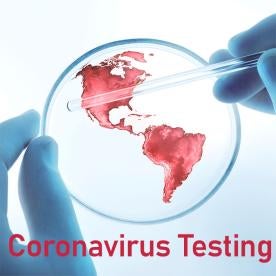The 2019 novel coronavirus (COVID-19) pandemic is unprecedented in many respects, from stay-at-home orders and school and business closures to immense strain on health care systems. Additionally, critical medical supplies, including ventilators, masks and gowns reportedly are in increasingly short supply, and there is high demand for COVID-19 tests, laboratories that can quickly process the tests and development of an effective vaccine.
Businesses are closely examining whether they may be able to meet these new demands, including through collaborative efforts with other businesses, some of which are competitors. This collaboration, however, requires careful evaluation of potential antitrust risks. Fortunately, antitrust agencies in the U.S. and around the world have been quick to respond to these concerns and issue guidance intended to encourage collaboration that meets the unique needs of the present health crisis while staying compliant with applicable antitrust laws.
U.S. GUIDANCE
The two primary antitrust enforcers in the U.S., the Department of Justice Antitrust Division (DOJ) and the Federal Trade Commission (FTC), recently issued a joint statement concerning COVID-19 that expressly recognizes that this new disease will require unprecedented cooperation—including between private businesses—to protect Americans’ health and safety.
To encourage cooperation in the private sector, the DOJ and FTC have agreed to significantly expedite resolution of the DOJ’s Business Review Process and the FTC’s Advisory Opinion Process. These processes have long been in place for the business community to request advance guidance from the antitrust agencies regarding proposed conduct, but often take several months to complete. The DOJ and FTC now are aiming to respond to all COVID-19-related requests within seven calendar days of receiving all necessary information.
The agencies also have referred the business community to the National Cooperative Research and Production Act (NCRPA), which provides a more flexible standard for evaluating research and development and production joint ventures under federal antitrust law. NCRPA also limits damages in civil cases challenging such ventures, as long as a notification about the joint venture has been submitted to the DOJ. The DOJ appears intent on expediting processing of NCRPA filings that relate to COVID-19.
The joint statement indicates that the agencies will account for the exigent circumstances in evaluating collaborations, particularly where they are limited in duration and necessary to respond to the health crisis and its aftermath. At the same time, the agencies will not tolerate agreements made to exploit the crisis by suppressing competition and warn that they will use their civil and criminal powers as necessary to address such violations.
Finally, the agencies reaffirmed certain longstanding principles of antitrust law including:
-
Collaboration on research and development typically is viewed as procompetitive.
-
Sharing technical know-how, but not competitively sensitive data on prices, wages, output or costs, may be necessary and appropriate to achieve the benefits of collaborations.
-
The agencies generally will not challenge health care providers’ development of suggested patient management parameters to assist in clinical decision making.
-
Joint purchasing arrangements among health care providers usually do not raise antitrust concerns.
-
Private lobbying of government agencies regarding COVID-19-related issues generally is protected by the First Amendment from antitrust liability.
To date, we are unaware of any state antitrust enforcers that have issued antitrust guidance on COVID-19, though state enforcers often follow federal law and guidance. State enforcers are, however, very focused on addressing price gouging and other consumer protection concerns relating to COVID-19.
EU GUIDANCE
Antitrust enforcers in the European Union (EU) have issued similar guidance signaling that companies may cooperate in the distribution of needed supplies and services relating to the pandemic with minimal antitrust risk.
Both the European Competition Network (the Network), made up of the European Commission and competition authorities of EU member states, and the U.K.’s competition authority recently issued statements that the “extraordinary” COVID-19 situation “may trigger the need for companies to cooperate in order to ensure the supply and fair distribution of scarce products.”
Accordingly, the Network explains that EU enforcers “will not actively intervene against necessary and temporary measures put in place in order to avoid a shortage of supply.” The U.K. authority similarly explains that it will not take action where coordination is appropriate and necessary to avoid a shortage or ensure security of supply, is clearly in the public interest, contributes to the benefit or wellbeing of consumers, deals with critical issues arising as a result of the pandemic, and lasts no longer than necessary.
According to the U.K. guidance, coordinated actions that are least likely to be problematic include those that avoid a shortage or ensure security of supply; ensure a fair distribution of scarce products; or continue essential services or provide new services such as food delivery to vulnerable consumers. Even these coordinated actions, however, must go no further than reasonably necessary.
Similar to the U.S. agencies, European enforcers warn that they will not hesitate to take action against companies that take advantage of the crisis by colluding or abusing their dominant position by raising prices on critical supplies. The U.K. authority also specifically warns against competitors exchanging commercially sensitive information on future pricing or business strategies, where there is no need to do so to meet the needs of the current situation.
TIPS TO MINIMIZE ANTITRUST RISK
Recent guidance from U.S. and European antitrust enforcers provides considerable leeway for companies to collaborate in an effort to meet the unprecedented challenges of the current pandemic. However, to help ensure that antitrust risk of such collaborations remains low, companies should adhere to the following guidelines:
-
Despite the new guidance, remember that antitrust law remains in effect during the COVID-19 crisis.
-
Collaborations should be responsive to the present COVID-19 crisis and the exigent circumstances it presents.
-
The scope of the collaboration should go no further, and last no longer, than reasonably necessary to respond to the crisis and its aftermath.
-
Competitors may share technical know-how necessary to achieve the benefits of collaboration, but generally should not share competitively sensitive information regarding current prices, output, costs or strategy.
-
Companies should avoid collaborative conduct that could be construed as exploiting the crisis in a manner that harms consumers, including through collusive behavior to increase prices, decrease output or reduce quality.
-
Because economic crises often are followed by an uptick in government investigations, be particularly careful when creating documents relating to the collaboration. Companies should document the legitimate bases for the collaboration and avoid creating documents that later could be construed to reflect anti-competitive intent (take care with humor or sarcasm).
-
Companies generally should consult with antitrust counsel before embarking on collaborations intended to address the COVID-19 crisis, and, if necessary, seek additional guidance from antitrust enforcers.



 />i
/>i

